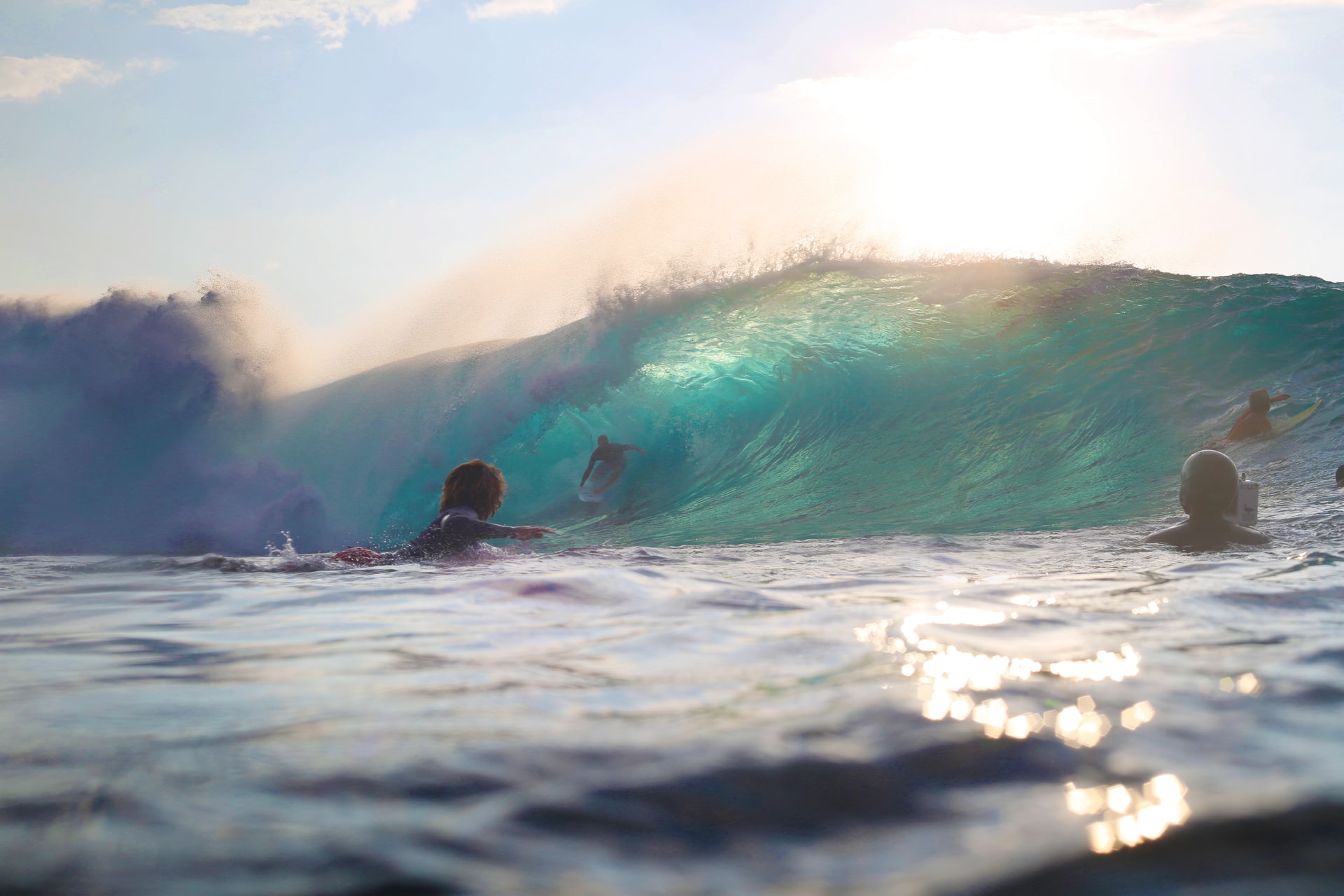Have you ever wondered if it is possible to learn to surf if you are not a good swimmer?
What about surfing if you cannot swim at all?
Surfing, more often than not, is done in water deeper than you can stand in.
If you cannot swim it is an extremely bad idea to try to go surfing.
Being a competent swimmer is important for surfing, not only because it will aid you with paddling, but it will increase your safety in what is a dangerous sport.
Below we will take a look at how well you need to be able to swim before surfing, what you can do if you are a weak swimmer, and why it is a bad idea to enter the ocean when you are not confident in the water.
- Do I Have to Be a Good Swimmer to Surf?
- How Well Do You Have to Swim to Surf?
- I’m Not a Good Swimmer – Can I Learn to Surf?
- Can Non-Swimmers Surf?
- Are There Any Surfers Who Can’t Swim Very Well?
- Can You Wear a Life Jacket While Surfing?
- What if I’m Interested in Surfing but Don’t Enjoy Swimming?
- Can I Surf if I’m Not Very Comfortable or Even Scared in the Ocean?
- 8 Tips if You Want to Learn to Surf and Aren’t a Good Swimmer Yet
- Conclusion
- You Might Also Like…
Disclosure: this post contains affiliate links (clearly marked with ), which means we may earn a commission if you buy something through them, at no additional cost to you.
Do I Have to Be a Good Swimmer to Surf?
You do not need to be an extremely strong swimmer to surf.
However, the size of the wave, wind direction, currents, size of your board, and the type of break will all affect how important your swimming level needs to be.
Size of the Waves
The size of the waves that are breaking in the bay will directly affect how well you need to swim.
Attempting to surf overhead waves when you are not a great swimmer is extremely dangerous.
As larger waves come with exponential amounts of power, surfers go into these conditions with the expectation of facing some heavy wipe-outs, as well as the knowledge that a difficult paddle to the back-line is likely.
Without the ability to quickly swim back to your surfboard, jump onto it, and begin a fast and efficient paddle through the oncoming waves, you may find waves constantly breaking on your head.
This can be a terrifying experience, and rightfully so, as it drastically increases the chance of exhaustion and possible drowning.
On the flip side, surfing in 1 – 2 foot waves is less demanding. It is possible to surf in these smaller conditions when you are not a strong swimmer (although being a competent swimmer is still necessary).
Wind Direction
The direction and strength of the wind can make or break a good surf day.
If you are not a strong swimmer, the wind becomes even more important.
Although the ideal wind is a slight offshore breeze, which will aid you in getting past the break, this will also make paddling onto a wave or getting back to shore more difficult.
If you are not a strong swimmer, you are likely not a strong paddler.
This is also true in cross-shore conditions. If there is a strong wind blowing across the beach, you may find yourself hundreds of meters down the bay with no energy to get back.
Similarly, an onshore wind without a strong swimming and paddling technique will leave you fighting the first line of waves and making it no further.
If you are not a strong swimmer, choose your wind conditions wisely.
Whatever direction of wind you choose to surf in, it is best to paddle out in mild conditions if you are not swimming fit.
Currents
The same as it is with the wind, so it is with currents.
Surfing in strong currents is common among surfers but is not a good idea if you are not a strong swimmer.
Currents can carry you hundreds of meters away from your starting point.
Without the power to paddle through them, as well as the know-how on navigating currents, this is an extremely dangerous situation to be in.
If you are not both a strong swimmer and paddler, surfing in currents should be avoided.
Size of Your Surfboard
The size of your surfboard will also have an effect that is closely linked to your swimming capabilities.
Smaller surfboards require a more refined paddle technique (which is improved with swimming).
These boards are also less buoyant, and therefore somewhat less supportive for times that you need a rest.
On the other hand, a larger board is more difficult to move around in the water.
In a situation when you are in the water, floating beside your longboard, quickly turning it around in the face of an oncoming wave will be significantly more difficult for those who are not confident swimmers.
The Type of Break
Your level of swimming capabilities will also greatly depend on the type of break you are surfing.
Generally, surfing a beach or point break will require better swimming skills. This is because these breaks are generally deeper, and have waves breaking over large areas.
Ironically, it is also at beach breaks that beginners will usually learn to surf. This is because it is possible to practice in the broken waves in depths shallower than your waist height.
Surfing on a reef is slightly different. Because reefs break in the same place continuously, it is possible to surf when your swimming skills are not the best.
This is especially true for dry reefs as in most cases you can stand up at any time. That being said, surfing a reef break is not for beginners.
Although they are better to surf if you are not a strong swimmer, your swimming has likely improved along with your surfing while learning to surf on beach breaks.
How Well Do You Have to Swim to Surf?
You do not need to be a competitive swimmer to be able to surf.
However, you do need to be confident in the water and be able to hold your own if you lose your board.
Although they are not the only criteria, the following two general rules should be met before paddling out:
- You should be able to swim without your board in the conditions that you plan to surf in.
For example, if there are 2 – 3 foot waves breaking over a beach break, you should feel happy to swim among these waves.
If you are not, then it is a good indication that your swimming level is not where it needs to be to remain safe.
- You should be capable of swimming back to shore from the furthest point you intend to paddle out to.
The reason for this is that there is always a chance you can lose your board. If your leash is to break and your surfboard is washed to the beach, you will need to swim.
Although your wetsuit will aid you with this as wetsuits increase buoyancy, if there is a 200-meter swim and you are only able to swim 20 meters, you are in a lot of trouble.
There is no hard and fast rule of how well you need to be able to swim to surf.
But for safety reasons, you should be more confident in the water off of your surfboard than you are while on your board.
I’m Not a Good Swimmer – Can I Learn to Surf?
If you are not a good swimmer, nothing is stopping you from learning to surf.
Of course the better your swimming ability, the easier you will find it to paddle and maneuver in the water, but all these things can be learned.
As we have discussed above, if you are not a strong swimmer, you can still learn to surf, but the conditions you learn in will need to be adjusted accordingly.
Luckily, learning to surf is usually done close to the shore in shallow water with small waves.
If you are a less-than-average swimmer, providing there are no strong currents, this should not be a problem.
Can Non-Swimmers Surf?
If you ask Google if non-swimmers can surf, you will come across countless articles claiming that you do not need to be able to swim to surf.
These articles claim that because you are floating on a board, all you need to do is learn to paddle and that is enough.
It cannot be stressed enough how incorrect this is.
Under no circumstances should anyone enter the ocean unless they can swim, and preferably, swim well.
The ocean is always changing, powerful, and unpredictable.
If you cannot swim, you should not be trying to surf.
This being said, there is a particularly inspiring story of a now professional surfer who learned to surf while he could not swim.
Kwezi Qika, a South African-born professional longboarder could not swim for the first 3 years that he surfed.
This is a special case scenario where he had constant attention from other surfers and friends who kept him safe in the water.
Although Kwezi overcame this situation, it remains an incredibly bad idea to try and surf before you have at least a low level of swimming abilities.
Are There Any Surfers Who Can’t Swim Very Well?
Many surfers around the world are not strong swimmers.
If you head down to your local beach and ask several new or intermediate surfers, many of them will claim that they could not swim well when they learned to surf.
Not being a strong swimmer should not hold you back. However, it should keep you more aware of the water conditions and possible dangers.
Just like Kwezi mentioned above, it is always possible to learn.
The more you surf, the better your swimming will become, and the more you swim, the more confident you will become in the water while surfing.
Can You Wear a Life Jacket While Surfing?
Can you surf with a life jacket? Technically, yes.
Should you surf with a life jacket?
Unless you are a big wave surfer, then the answer is most likely no.
Although a life jacket will prevent you from drowning, wearing one while surfing can cause more harm than good.
Life Jackets Restrict Paddling
As an avid surfer, they will tell you that paddling is 80% of surfing.
When you are wearing a life jacket, the distance between your arms and the water is increased.
This will have a negative effect on your paddling as less of your arm will enter the water, meaning that you have decreased the surface area of your paddle and therefore will need to paddle harder for the same results.
Life Jackets Prevent Duck Diving
Learning to duck dive is essential to getting past the break and into the backline.
Duck diving involves submerging yourself and your surfboard under the water in order to move past a wave.
Life jackets are made to prevent you from becoming submerged. Can you see the problem?
If you are planning to paddle past waves and into a backline, then a life jacket will make this near impossible.
When Is It Okay to Use a Life Jacket While Surfing?
Although it is not recommended to wear a life jacket while surfing, some beginners still do.
If you are adamant to wear a life jacket, the only time you should do this is when you are surfing in small waves close to the shore that you will not need to paddle past.
Life jackets are not recommended for surfers.
In short, if you cannot swim without a life jacket, then you should not be surfing.
What if I’m Interested in Surfing but Don’t Enjoy Swimming?
How different is surfing from swimming?
What if you do not like to swim but still seem interested in surfing?
It is very possible to enjoy surfing if you do not like to swim, but the reason for your dislike of swimming will greatly affect your enjoyment of surfing.
For example, if you dislike swimming because you do not enjoy being in the water, or perhaps you do not like the feeling of water splashing in your face, then you will likely not enjoy surfing.
However, if you simply do not enjoy the activity of swimming, but are a capable swimmer, then there is every chance that you may enjoy surfing.
In this case, the only way to find out is to give surfing a try.
Can I Surf if I’m Not Very Comfortable or Even Scared in the Ocean?
Many people take up surfing as a means to overcome their fear of the ocean.
The ocean can be a dangerous place, and therefore fear or being uncomfortable when in it is more common than you may think.
Learning to surf is an amazing way to face this fear as it can teach you that when you show the ocean respect and learn how it works, what once seemed like an unforgiving monster can become your personal playground.
If you are unsure about the ocean but want to try surfing, it is best to take surfing lessons instead of trying to learn by yourself.
Entering the water with someone who has a strong knowledge of the ocean will help you stay calm, build confidence, and show you how to remain safe.
8 Tips if You Want to Learn to Surf and Aren’t a Good Swimmer Yet
Learning to surf when you are not a strong swimmer is, in most cases, more difficult.
Although it may be slightly harder, the following tips will help you remain safe while improving your skills at an exponential rate.
- Never paddle out in water you are not comfortable swimming in.
- Never surf alone if you are not a strong swimmer.
- Opt for calm conditions (no currents, low levels of wind, and smaller waves).
- Make sure there are always lifeguards on duty or friends that are strong swimmers and can watch over you as you surf.
- Surf in water where the waves are breaking close to shore.
- You should be able to tread water for more than 5 minutes without the use of your board (a wetsuit will help with this).
- Practice swimming at least once a week. Even if you do not enjoy swimming, the better you can swim, the more comfortable and safe you will be in the water.
- Surf in areas that are ideal for beginner surfers until your swimming has improved.
Conclusion
Not all surfers are good swimmers. However, the better you can swim the easier you will find it to paddle, and the more comfortable you will find yourself when in the ocean.
Under no circumstance should anyone enter the ocean if they cannot swim.
However, when you are not a strong swimmer, surfing in calm waters with friends who can swim well is still an option.
You Might Also Like…
-

Do Surfers Ride Switchfoot? 5 Benefits (& Why You Should Learn It)
-

Do Surfers Shave Their Legs? 5 Common Reasons (+Pros & Cons)
-

Do Surfers Wear Helmets? 8 Situations You Should Wear One (+4 Cons)
-

Do Surfers Poop in the Ocean? Myths & Facts (+5 Tips)
-
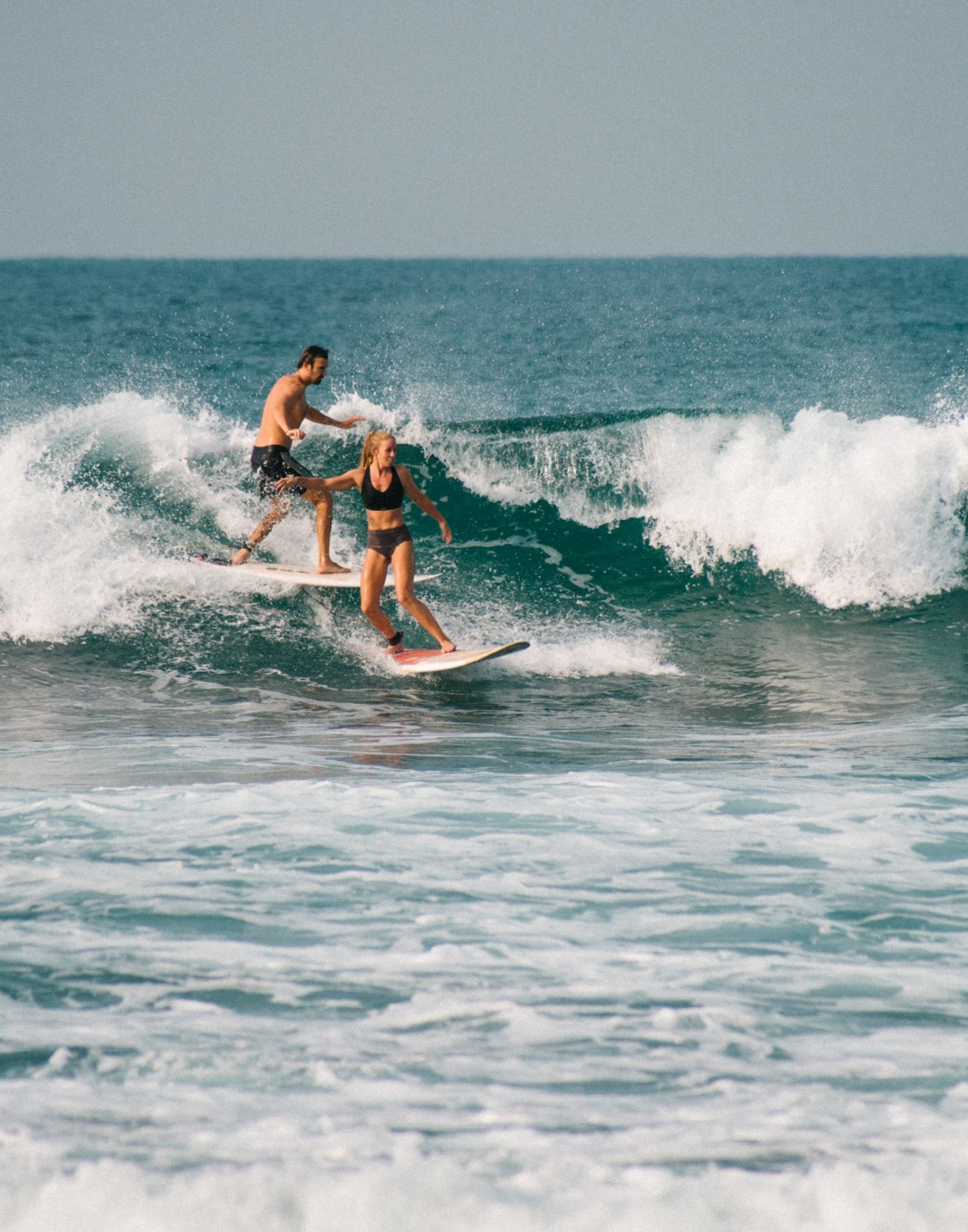
Do Surfers Run Into Each Other? 5 Common Reasons (+8 Tips)
-
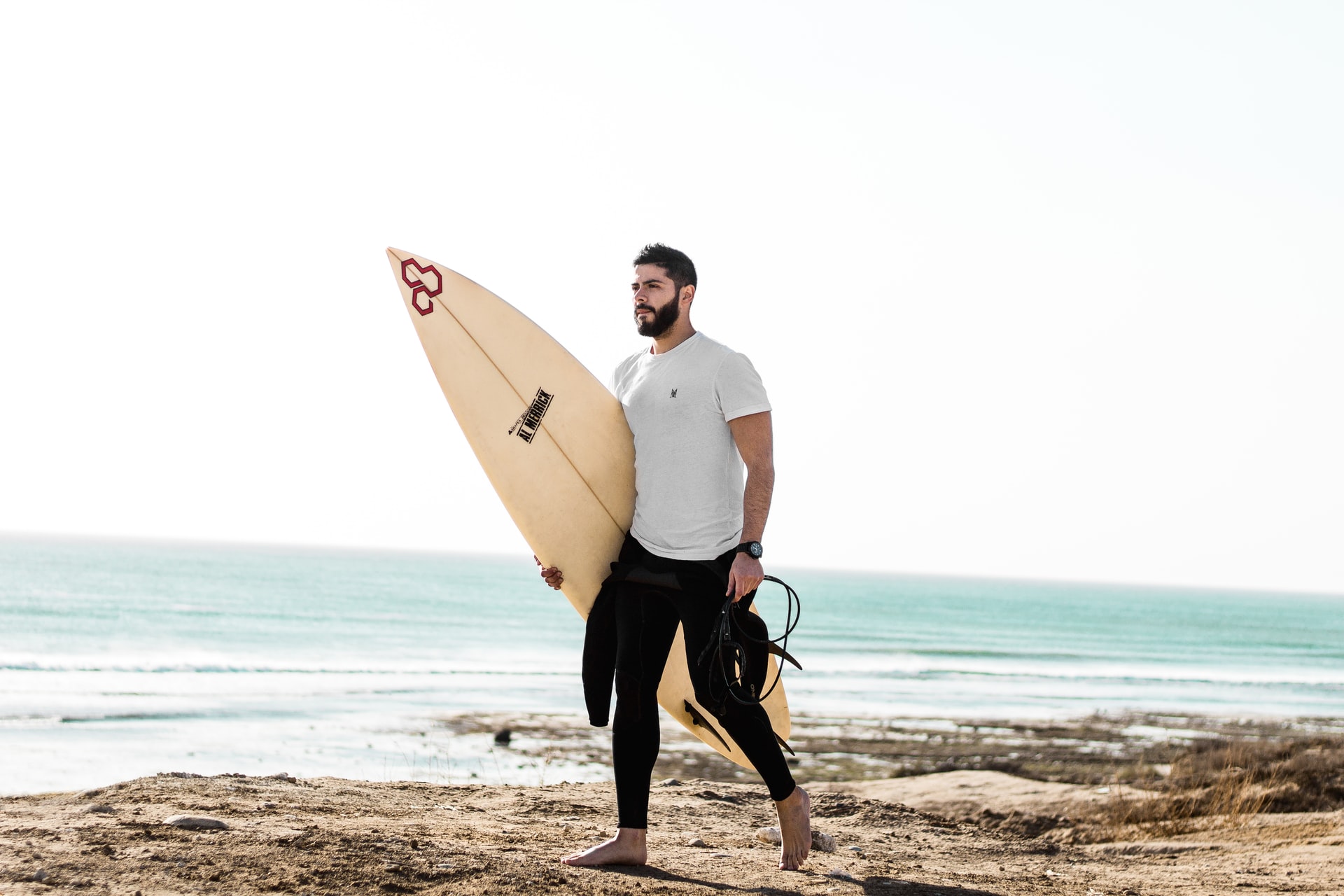
Do Surfers Have Beards? Pros & Cons You Should Know (+4 Tips)
-
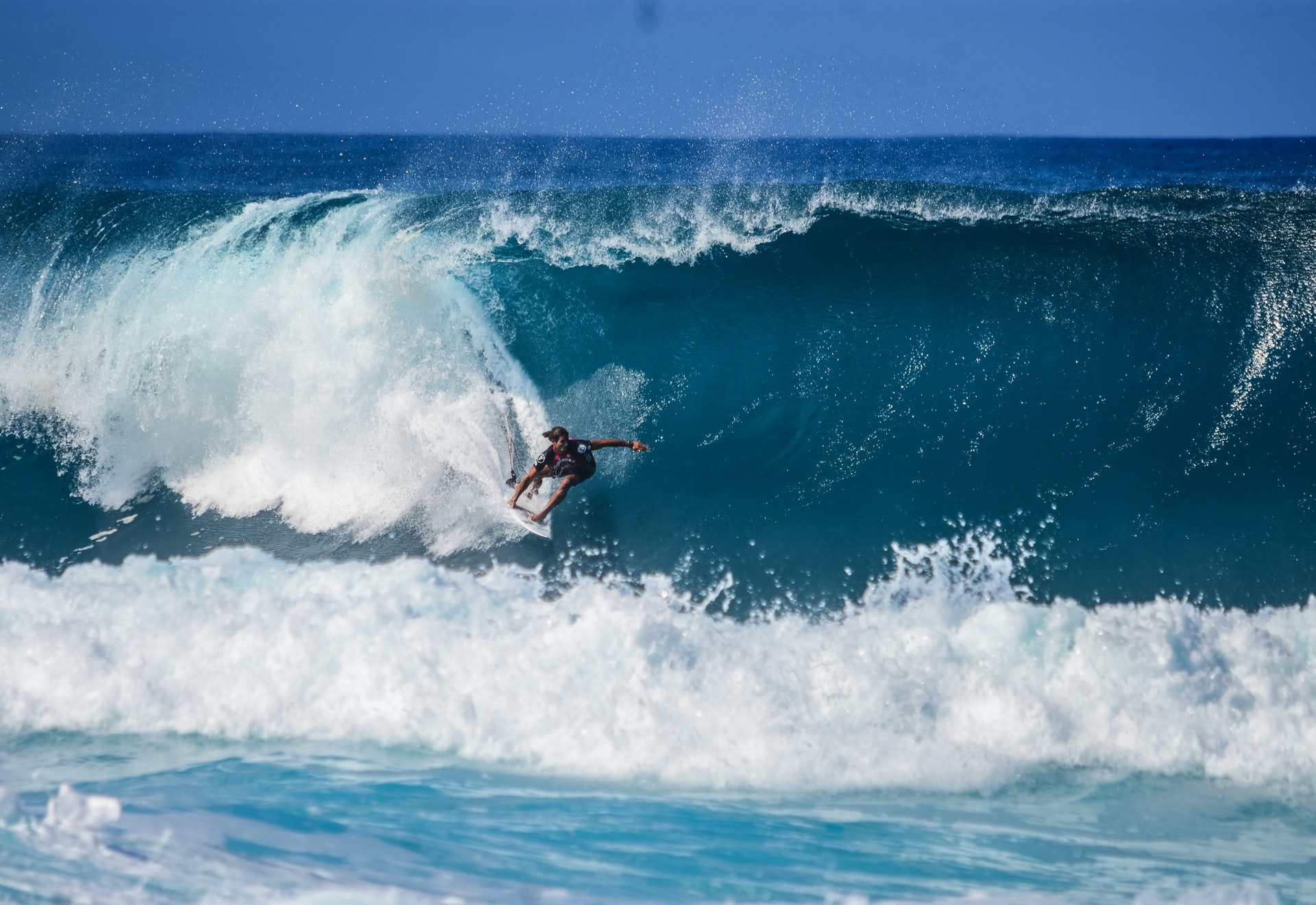
Do Surfers Like Constructive or Destructive Waves? (+Pros & Cons)
-
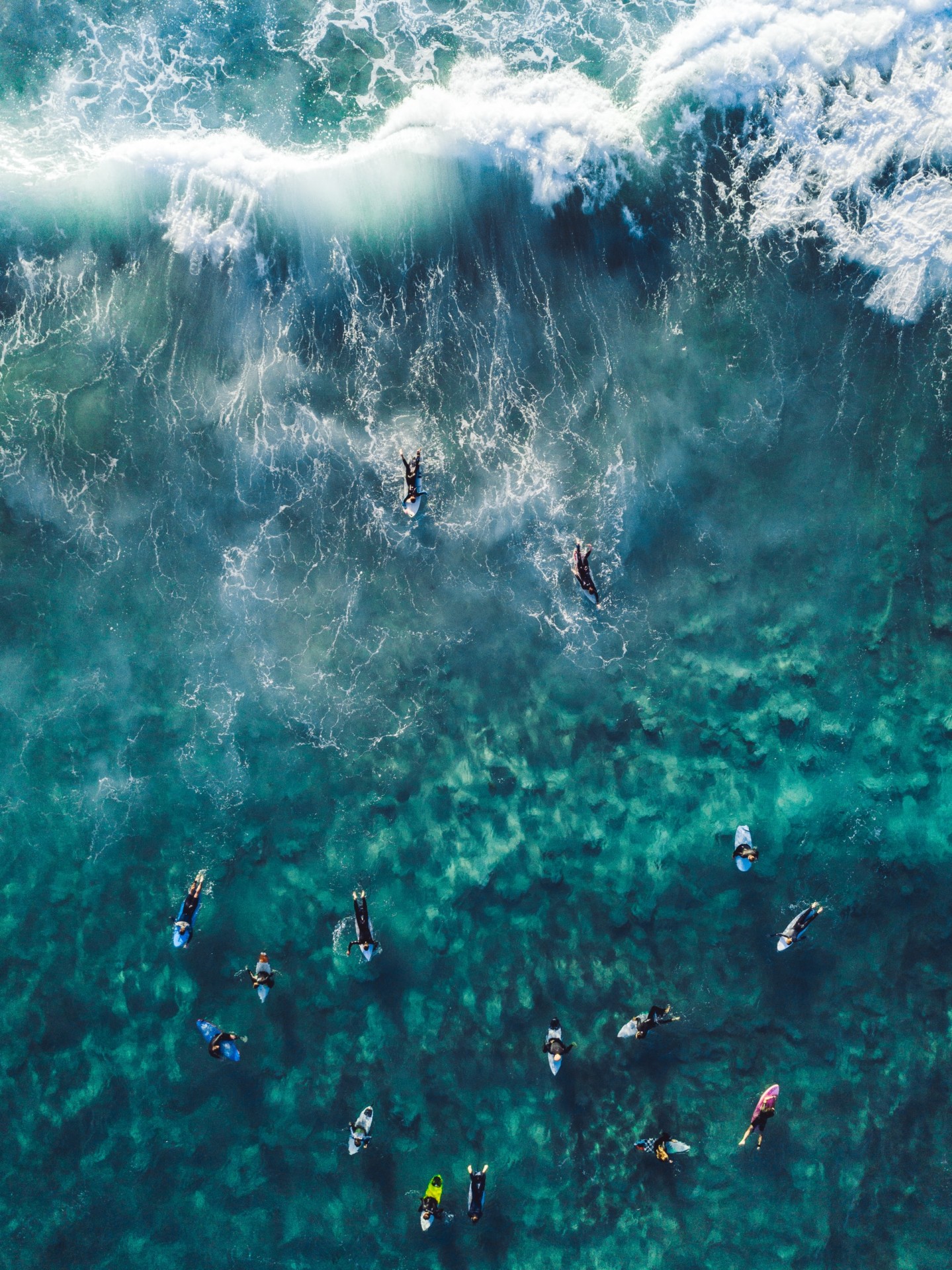
How to Surf Safely: 34 Crucial Tips (Every Surfer Should Know)
-
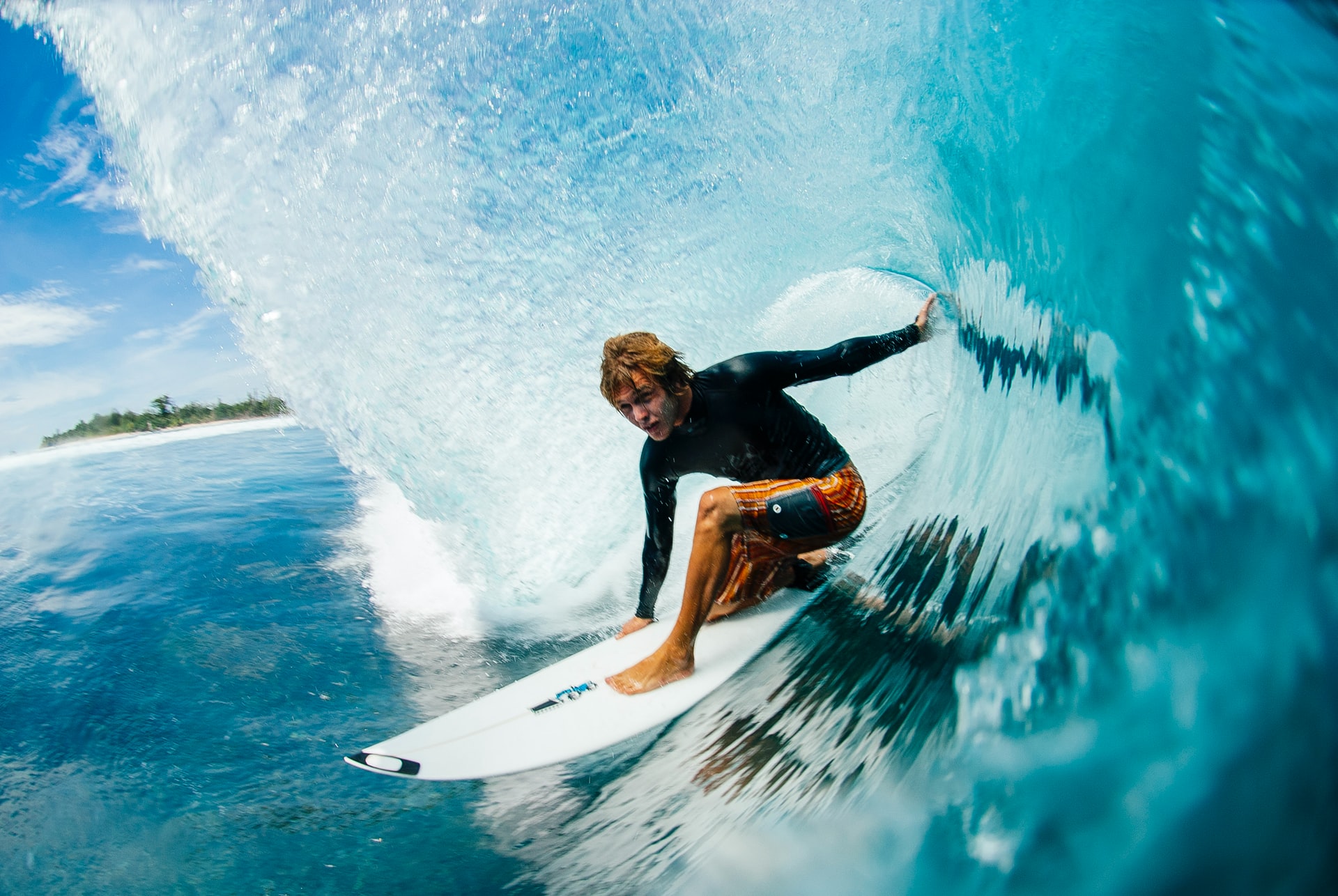
Do Pro Surfers Use Leashes? (+6 Reasons Why You Should Too)
-
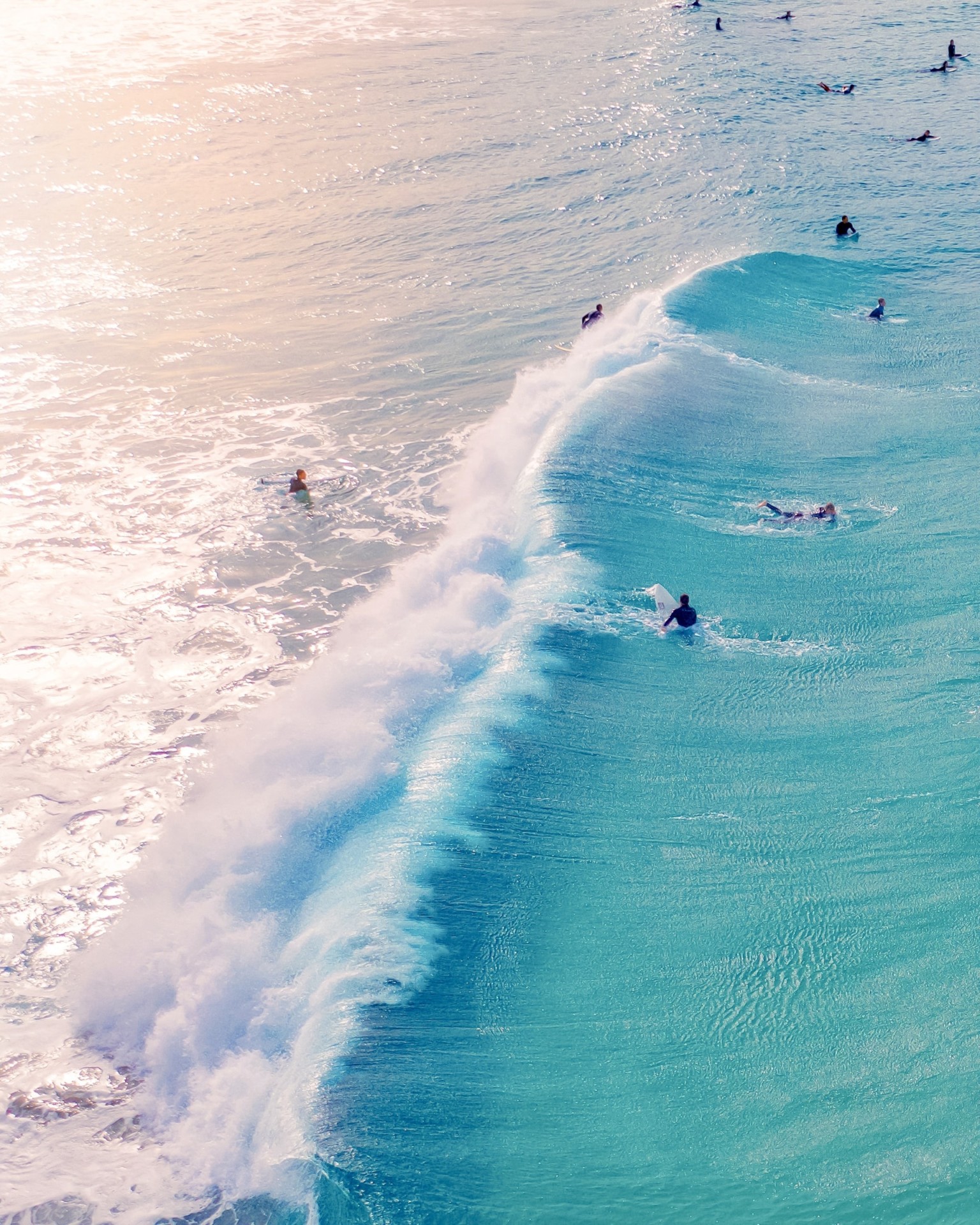
Do Many Surfers Drown? Here Are the Facts (+4 Common Reasons)
-
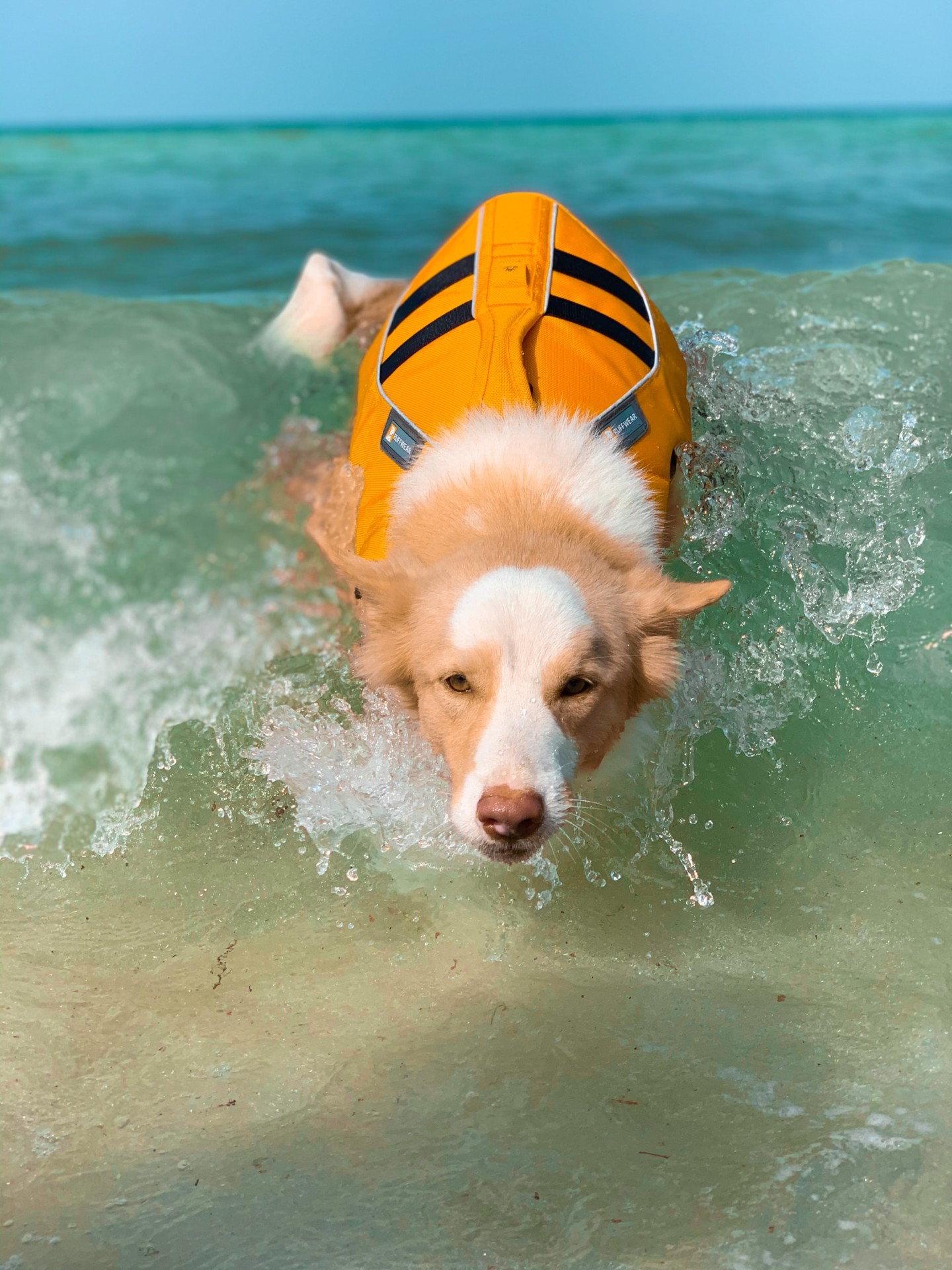
Do Surfers Wear Life Jackets? (7 Reasons Why They Don’t)
-
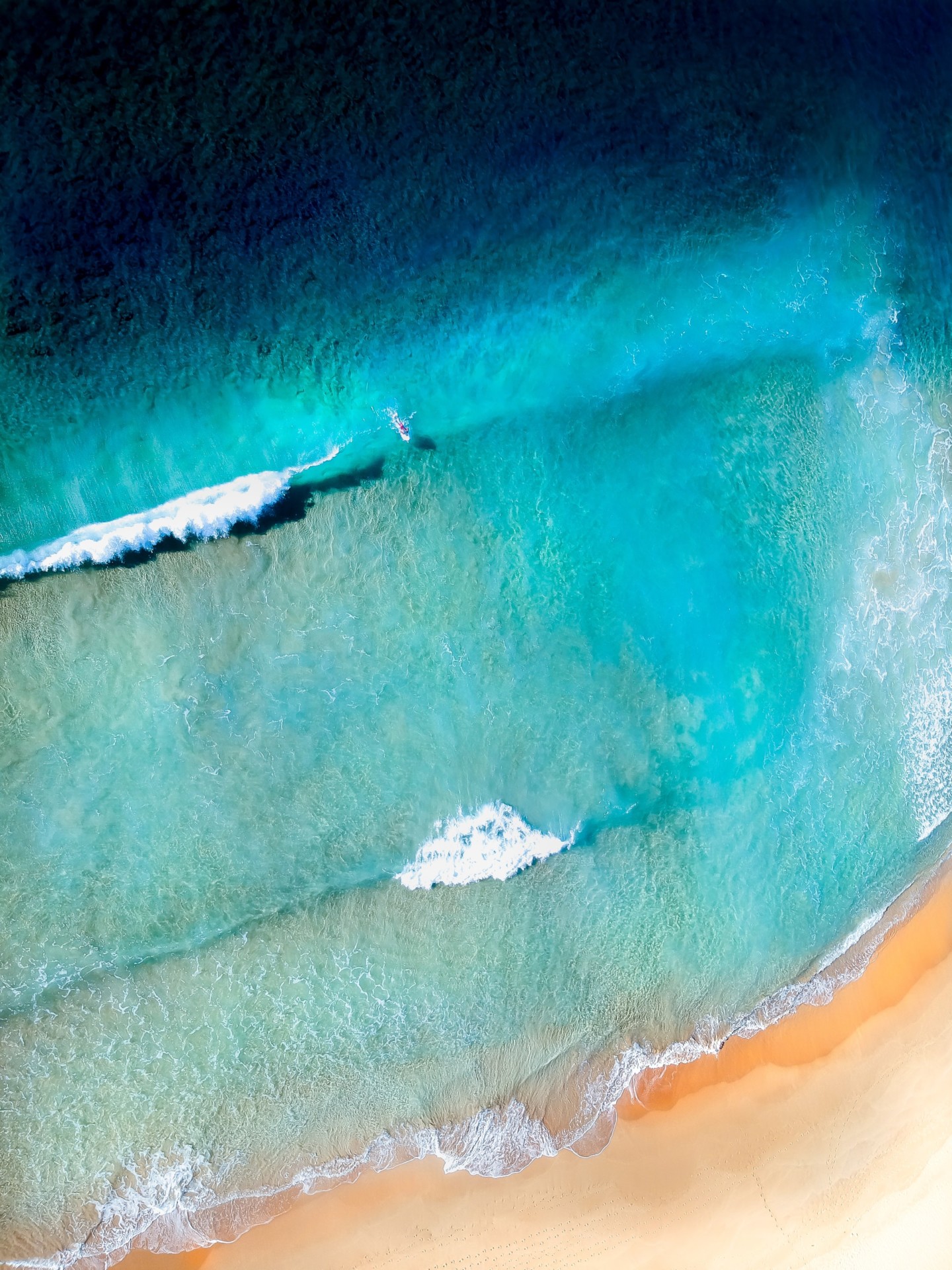
Do Surfers Like Rip Currents? (& How to Use Them Safely)

